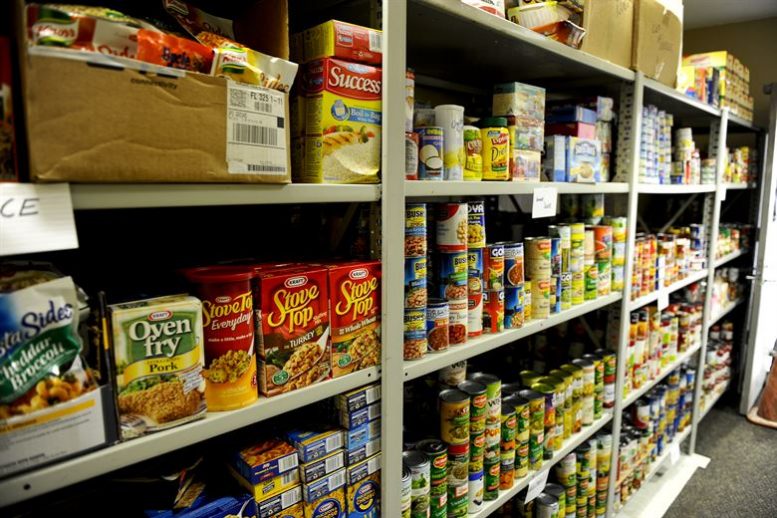BY SUSAN TEBBEN
As Ohio food banks see record-breaking amounts of need, the state is also at risk of losing federal funding that could help residents get essential needs and boosts in employment.
After the most recent state budget passed with a plan to redesign the education and training piece of the state’s Supplemental Nutrition Assistance Program (SNAP), food and employment advocates across the state watched as the program became a “compliance machine,” rather than a way to bring Ohioans out of poverty.
“The bottom line is that our current program that we’ve been running for many, many years in Ohio does not … meet the needs of employers, it does not increase employment, it does not increase wages,” Rachel Cahill, a visiting fellow with the Center for Community Solutions, said during a recent webinar by the Ohio Workforce Coalition.
The federally-funded SNAP program’s future in Ohio could also be at risk after negative evaluations from the US Department of Agriculture and federal agencies meant to “assess how well our staff employment training program is working or not working,” according to Hope Lane-Gavin, director of nutrition policy and programs with the Ohio Association of Food Banks.
“Ohio has continued to produce bad management evaluations … that determine we are not screening participants for exemptions adequately and we are not providing supportive services,” said Lane-Gavin, who also participated in the OWC webinar on SNAP benefits and local implementation.
Cahill said she is in a work group aimed at redesigning the state SNAP program. She mentioned a “written warning letter” that was sent to the state from the USDA saying federal funding for the next fiscal year may be in jeopardy if the state doesn’t bring their program into compliance.
“If we don’t get this right, if we don’t redesign this well, we are going to lose that federal funding, and we won’t be able to support the type of programs … that we have now,” Cahill said.
The Ohio Department of Job and Family Services’ SNAP Employment & Training Plan states a new policy was implemented by the state effective July 1, 2023, “to help ensure all requirements are being met prior to sanctioning an individual who is non-compliant with SNAP E&T.”
The document states the change was made as a result of notification from the USDA’s Food and Nutrition Service, which said “until Ohio is in full compliance with regulations affecting program access, the state must take steps immediately to ensure that SNAP E&T participants are not improperly sanctioned.”

The current Ohio program expands on work requirements that are already in place through the federal SNAP program’sregulations by including the state option of mandatory employment requirements for “able-bodied adults without dependents” or ABAWDS.
Under the federal program, while there are work requirements, there is also a three-month grace period allowing individuals to attempt to gain employment before they’re removed from the SNAP program.
With Ohio’s mandatory employment and training, that three-month grace period does not exist for ABAWDS, unless they’ve been a victim of domestic violence, according to Lane-Gavin.
“So, the federal time limit recognizes that individuals need access to food first before any meaningful attempts are made at identifying adequate and sustainable employment,” Lane-Gavin said.
Job training and barriers
For those programs who provide job training to SNAP-eligible Ohioans, the idea that someone is forced to participate doesn’t necessarily improve the chances of success.
At the Center for Employment Opportunities, an Ohio-based program working to help formerly incarcerated individuals re-enter the workforce, program leaders would rather work with those who commit voluntarily. That way, CEO knows those that come to their program are ready to improve their lives, rather than merely check a state-mandated box.
“Individuals are coming to CEO really motivated to work, but are facing barriers in connecting to the right opportunities,” Bacon said.
Bacon said studies of their program participants show about 80% of them are eligible for SNAP, and access to basic necessities as the formerly incarcerated come back out is needed as they navigate their new situation.
“We know that there’s a need, we know that people need both training and food security, and we’re seeing that play out in our program,” Bacon said.
While advocates are hoping for state reform, the opportunity for federal reform outside of the long-awaited farm bill, at least for one “unintended consequence” of the work requirements included in SNAP, could be on the horizon.
Federal legislation called the Training & Nutrition Stability Act, co-sponsored by Ohio Republican U.S. Rep. Max Miller, was touted by Bacon as a fix for a clause in SNAP eligibility that counts wages earned in job training toward benefit levels. Counting those wages could potentially reduce benefits or make a household ineligible, Bacon said.
The TNSA would exclude that income with regard to eligibility.
Locally, Lane-Gavin said the state needs to jump in to help county Job and Family Services agencies deal with the heavy implementation load that comes from the mandatory education and training requirements.
“Our county agencies are stretched thin … and SNAP employment and training is a compliance issue,” Lane-Gavin said. “It is just a paperwork machine.”
Part of the changes needed as part of the SNAP program in Ohio is a “paradigm shift” for county JFS offices that will not only allow them to stem the flow of paperwork, but also gain back the trust of program participants, who may have “animosity” because of the “punitive” nature of the current program, according to Cahill.
“If we really want to do meaningful recruitment and outreach for an employment and training program … we are going to have to do some rebuilding of trust with the community and that’s not going to happen overnight,” Cahill said.





